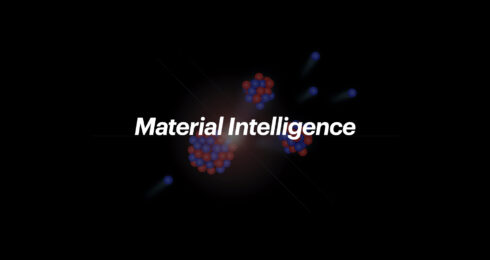Content warning: References to residential schools, legacies of trauma
- We call our community to use September 30 for reflection and action
- Resources for Survivors and their families
- How can you reflect and take meaningful action on National Day for Truth and Reconciliation?
- About Orange Shirt Day
We call our community to use September 30 for reflection and action
September 30, 2021 marks Canada’s first National Day for Truth and Reconciliation. This solemn day has been established to honour the lost children and Survivors of residential schools, their families and communities, and to ensure public commemoration of the history and legacy of residential schools as a vital component of the reconciliation process. From approximately the 1880s until 1996, the Indian Residential School System removed an estimated 150,000 First Nations, Métis and Inuit children from their families and communities as part of an official policy to eliminate Indigenous cultures. The creation of this day is Action 80 among the Truth & Reconciliation Commission’s 94 Calls to Action.
We urge all members of the Stewart Blusson Quantum Matter Institute community to observe this day in a way that will be personally meaningful. For those among us who are Survivors or family of Survivors, there are many resources available to support the difficult and complex emotions that may arise. For others, especially those who are settlers or newcomers to Canada, we encourage you to use this day to learn more about the history and legacy of residential schools.
Former senator and former justice Murray Sinclair, Chair of the Truth and Reconciliation Commission said, “The road we travel is equal in importance to the destination we seek. There are no shortcuts. When it comes to truth and reconciliation we are forced to go the distance.”
As we live, learn, and work on the traditional, ancestral and unceded lands of the xʷməθkʷəy̓əm people as members and beneficiaries of a colonial place of learning, we are connected with the land and its people. Together, let’s commit to meaningfully commemorating the National Day for Truth and Reconciliation on September 30, and continuing to walk this road for years and generations to come.
Respectfully,
Kim Kiloh, Managing Director
Sarah Burke, Chair, Equity & Inclusion Committee
Andrea Damascelli, Scientific Director
Resources for Survivors and their families
- The Indian Residential School Survivors Society encourages Survivors and their families to take time to care for their Mental and Emotional well-being.
- The Indian Residential School Survivors Society toll-free 1 (800) 721-0066
- 24hr Crisis Line 1 (866) 925-4419
- Indian Residential School History and Dialogue Centre (IRSHDC): Healing and Wellness Resources
- First Nations Health Authority: Residential Schools
- Indian Residential Schools Resolution Health Support Program
Actions you can take in recognition of the National Day for Truth and Reconciliation
Reflect
National Day for Truth and Reconciliation is an opportunity to recognize and commemorate the legacy of residential schools. So how can you use this day to advance your personal understanding of residential school history? Here are six places to start.
Learn
- Orange Shirt Day Educational Resources curated by the Indian Residential School History and Dialogue Centre at UBC.
- Read UBC’s Indigenous Strategic Plan (PDF)
- Watch: Residential Schools in Canada: A Timeline
Take part in events
- September 29: The 94 TRC Calls to Action: A Participatory Reading, a joint STEM faculty event
- September 30: Intergenerational March to commemorate Orange Shirt Day, a joint STEM faculty event
- September 30: Drum for the Children
- September 30 – October 29: Generations Lost: Healing the Legacy of Residential Schools
Donate
Wear orange
Wearing orange is a way to show your support for Survivors and their families and acknowledge the legacy of residential schools.
The IRSHDC and UBC are pleased to feature inaugural artist and intergenerational Survivor Eliot White-Hill and his thoughtful and moving design, “Truth”.
Shirts with Eliot’s design are available for sale at the UBC Bookstore and Museum of Anthropology (while quantities last). Proceeds from the sales will go to the Orange Shirt Society and the Indian Residential School Survivor Society. Orange t-shirts can also be purchased on the Orange Shirt Society website.
Read and share with kids
49th Shelf, a resource from the by the Association of Canadian Publishers, has compiled a list of Books for Orange Shirt Day for kids. For teens and adults, they also offer a list of 16 eBooks and audiobooks to help readers celebrate the cultures of First Nations, Métis, and Inuit peoples. The CBC has also posted a list of 48 books by Indigenous writers to read to understand residential schools.
CBC Kids has uploaded a playlist on YouTube for National Day for Truth and Reconciliation to help kids to learn about Indigenous heritage. Check out Indigenous culture segments with CBC Kids’ Janaye and Tony, and watch episodes of Molly of Denali.
About Orange Shirt Day
Every year on September 30, people across Canada wear orange and participate in Orange Shirt Day events to recognize and raise awareness about the history and legacies of the residential school system in Canada. Orange Shirt Day originates from the story of Phyllis Webstad from the Stswecem’c Xgat’tem First Nation. In 1973, on her first day at St. Joseph’s Residential School in Williams Lake, BC, Phyllis’s shiny new orange shirt was stripped from her, never to be seen again.
40 years later, on September 30, 2013, Phyllis spoke publicly for the first time about her experience, and thus began the Orange Shirt Day movement.
The Canadian government designated September 30 National Day for Truth and Reconciliation, beginning in 2021. This responds to Truth and Reconciliation Call to Action 80, which states that the federal government will work with Indigenous people to establish a statutory day to “honour Survivors, their families, and communities, and ensure that public commemoration of the history and legacy of residential schools remains a vital component of the reconciliation process”.
Learn more at irshdc.ubc.ca/orangeshirtday


